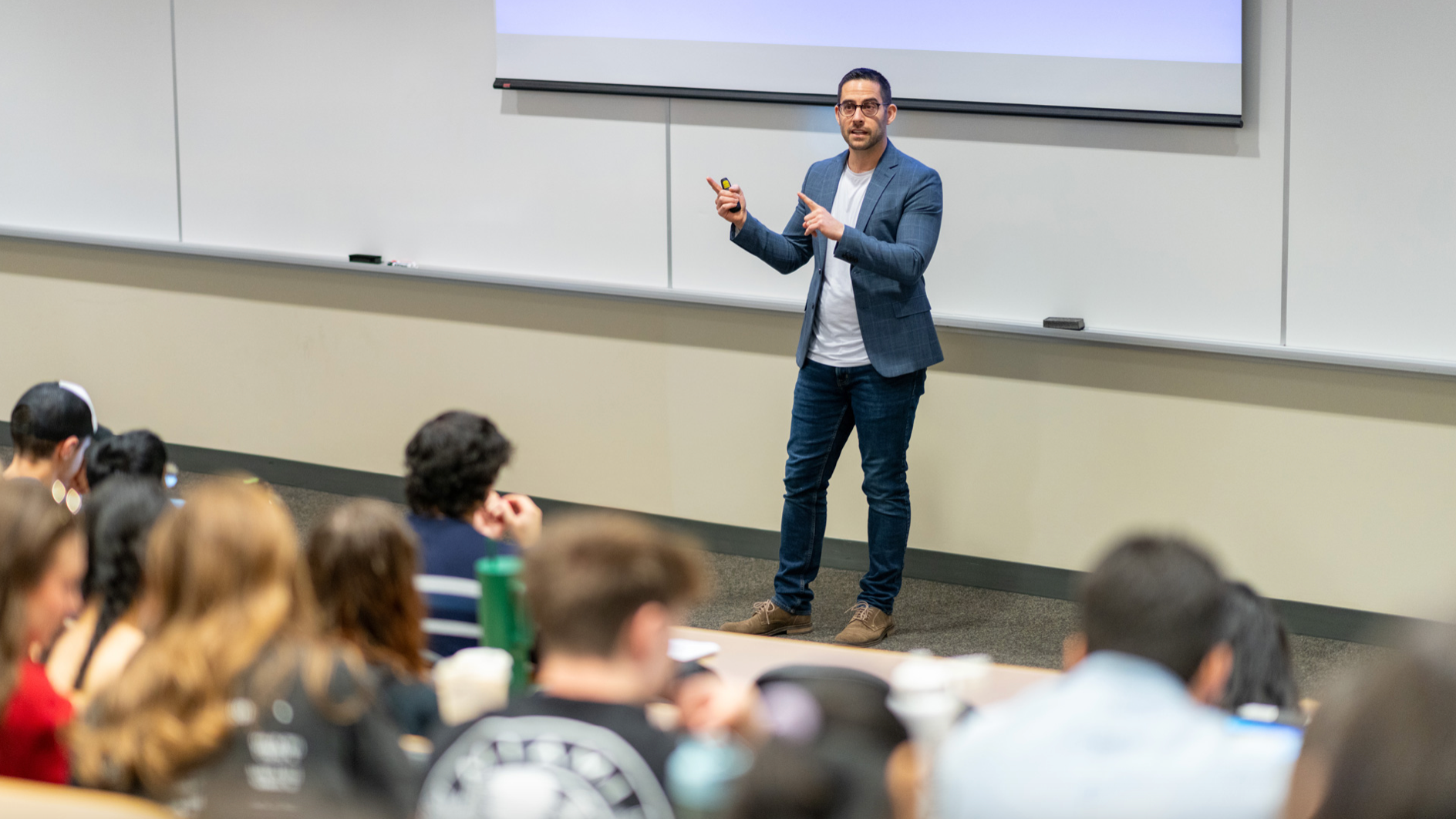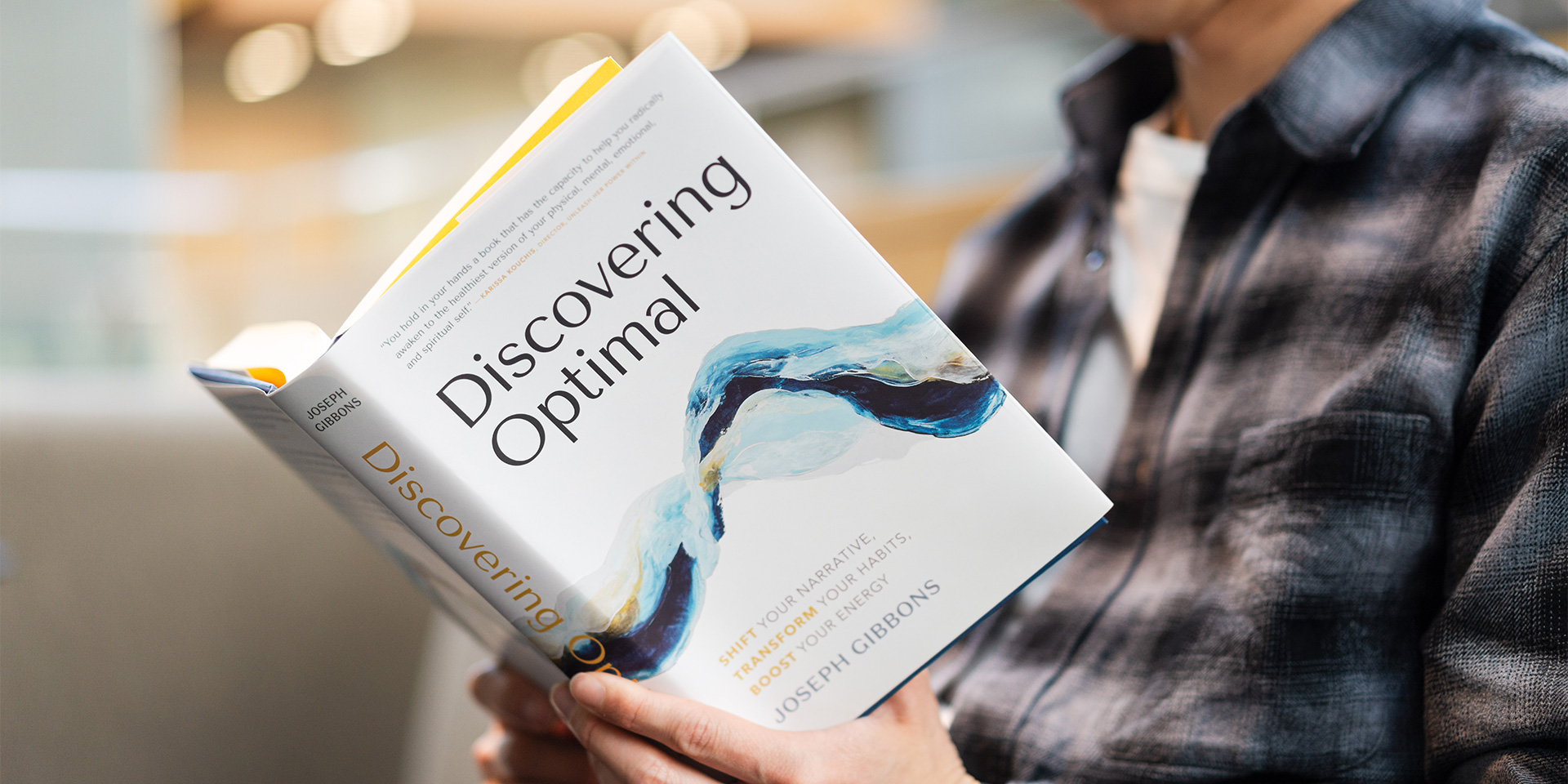How One Instructor’s Detour is Helping Students Find Their Way

A few years ago, Joseph Gibbons found himself standing in front of a class of students and he couldn’t find words. He had completely lost his ability to communicate a coherent thought. He walked out of the classroom and called his father. “Dad, the light switch in my brain just turned off.”
Gibbons, a full-time faculty member at Humber College and instructor in the Kinesiology program at the University of Guelph-Humber, explained that this shut-down happened because he had hit a breaking point. “I was addicted to work, to the productivity. I was a ‘yes person’…[and] I looked at my body as an endless pit of resources.”
Gibbons said despite this wake-up call, his response was delayed – by several years. “I spent the next ten years walking a tightrope, where the repercussions of my addiction [to work] could have led me to fall off at any moment.”
Gibbons explained that it wasn’t until his brain began showing significant symptoms of decline that he was finally forced to seek help. After a major paradigm shift, Gibbons said he combined his experiences with mental and physical burnout with his years of intensive research on optimal mental, physical, spiritual, and emotional well-being, and wrote a book called, “Discovering Optimal”, that has now been adopted into the Discovering Optimal Certificate (DOC) program.

“This multi-week program is intended for students who are looking to enhance their health and well-being, by learning and implementing techniques and practices that range from twenty-first century science to ancient ancestral wisdom,” he explained.
Gibbons, who also teaches Mental Health First Aid Training through the Mental Health Commission of Canada, admitted he didn’t initially set out to write a book or even create this program, but the results of his own journey were too significant not to share.
“To see [students] overworked and perhaps still trying to figure out how they can study best, how they can manage their emotions best, how they can move their body best, how they can optimize their sleep, hygiene, etcetera – they’re still kind of young in that exploration, and if I can expedite that, then I want to,” Gibbons said.
Within the pages of his book, Gibbons has identified challenges including excessive stress levels, environmental toxins, poor immune functioning, energy mismanagement, increased societal demands, among others, as the instigators of ailments like chronic fatigue, brain fog, and a decreased sense of life satisfaction. The solution? An introspective process he created to help realign health and behavioural priorities, providing strategies to revitalize a person’s holistic well-being.
Just this month, the very first cohort of Guelph-Humber students completed the DOC program which consisted of weekly interactive and introspective workshops using provided materials, and Gibbons himself as their guide.

This first session was financially supported by the University of Guelph-Humber’s Kinesiology program, enthusiastically backed by Program Head, Dr. Leslie Auger.
“We’re always looking for ways to support our students in their studies but also in their growth and health, and always in building a sense of community within the program,” Dr. Auger said, adding that it was a no-brainer when Gibbons pitched the idea of the program for GH students. “Students are experiencing more anxiety and stress than ever before. I know this will help them in their studies and when they continue on [after graduation].”
Nicolas Cyr, a second-year Kinesiology student who snagged one of the 40 coveted spots in the program said it wasn’t until Gibbons talked about mindfulness in his Exercise Prescription course that he even knew how the concept related to his overall health.
Cyr was so keen to find out more about Gibbons' findings that he bought his book before even entering the DOC program. When he received a second copy, sponsored by the Kin program, he decided to gift it to his father.
“As I read the book, I based what I was learning on how it could help me, but also how it could help my dad. He’s a yes person and overloads himself with stress,” Cyr said. “He is someone who could benefit from this.”
Dr. Auger believes many could benefit, “especially when you’re putting known peers in a classroom with an instructor they know and trust. It’s very conducive to opening up,” she said.
“A lot of them [in the program] opened up about mental health issues they’re going through,” said Gibbons. “That spoke even higher that students really need this.”
Cyr said that as a Kin student, he’s surrounded by knowledge and resources to improve health, and yet he still has trouble staying physically and mentally healthy. “For students that aren’t even in a health-centred course, I can’t even imagine how hard it is for them,” he said.
With support from both the University of Guelph-Humber and Humber College, the program – which Dr. Auger says will hopefully be available again this Fall – is open to all students.
"When students graduate from [DOC], they will have a better understanding of who they are mentally, physically, and emotionally. Through tailored activities they will also determine what constitutes an ideal life for them, both personally and professionally,” Gibbons said. With a clear vision for their future self, they will begin creating a blueprint, their roadmap for action going forward, to turn their goals into a reality.”
100 percent of the profits from the sale of Gibbons’ book, “Discovering Optimal” will be donated to children’s mental health initiatives.

